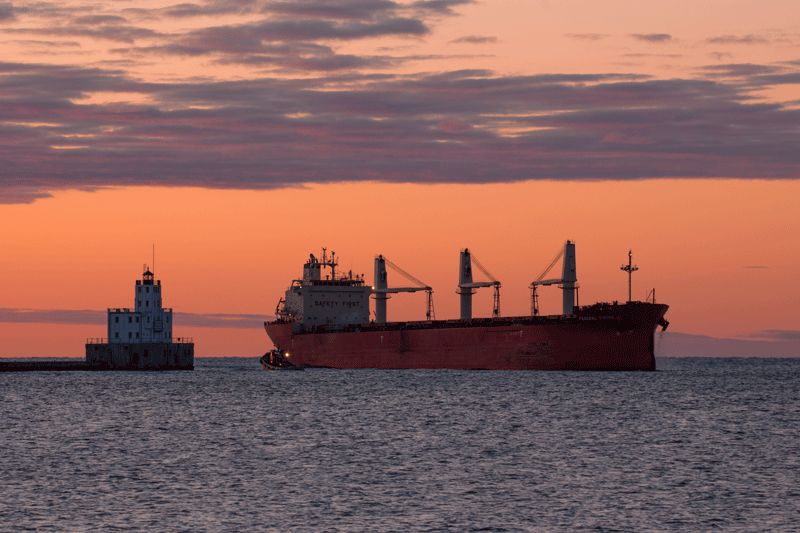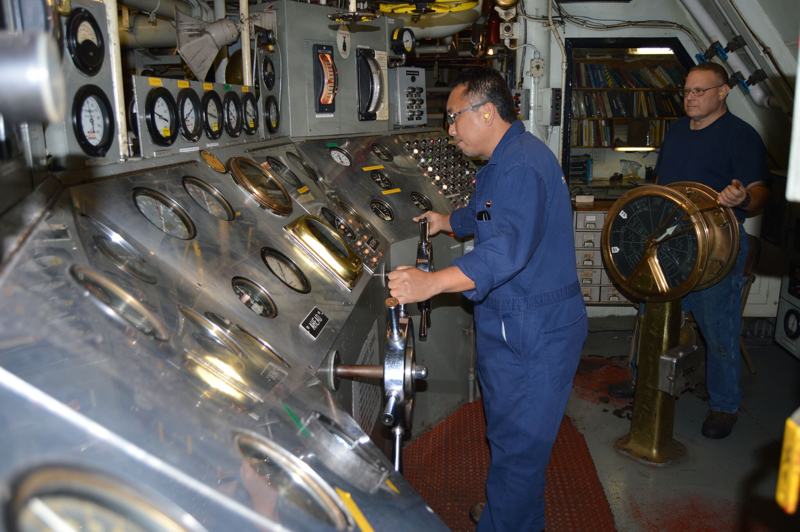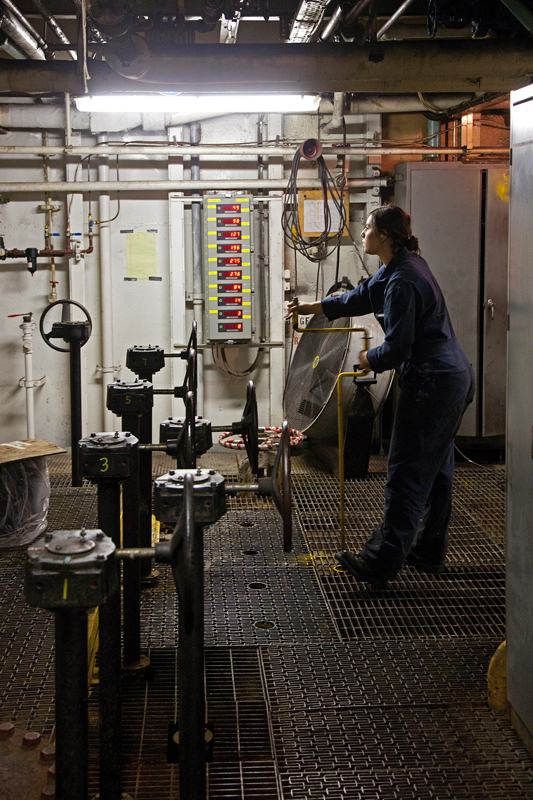The engine department operates, maintains and repairs engines, boilers, pumps, generators, and other machinery and systems crucial to a vessel’s operation. Personnel working in this department are divided into two categories: licensed and unlicensed personnel.
Licensed Personnel (Officers)

Officers hold licenses issued by the U.S. Coast Guard or Transport Canada. Becoming an officer in the engine department requires gaining sufficient experience and sea time as a qualified member of the engineering department, or earning a bachelor’s degree from a maritime academy in the U.S. or college diploma from a maritime college in Canada and passing examinations to be licensed as a third assistant engineer in the U.S. or a fifth assistant engineer in Canada. Advancement from this level is achieved through experience and completion of further examinations.
Chief Engineer
The Chief Engineer is the most senior licensed member of the engineering department who oversees the machinery and equipment of the vessel. Typically, the chief engineer ensures machinery and equipment are functional; assesses fuel, lube, oil and other consumables needs; updates supplies inventories; complies with rules and regulations; prepares the engine room for inspection; and supervises the engine crew.
Engineers

Engineers are responsible for operating and maintaining a vessel’s propulsion and auxiliary systems and other tasks depending on their rank, including responsibilities for main engines, boilers, fuel, steering mechanisms, feed systems, electrical, refrigeration systems, sewage treatment, lube oil, standing watch in the engine room, directing and supervising unlicensed crew, recording and reporting on the engine’s performance. Ranks range from fifth-class engineer to first-class engineer in Canada, and third assistant engineer to first assistant engineer in the United States, with responsibilities increasing from one rank to the other.
Unlicensed Engine Room Personnel Ratings

There are many varied roles in the engine room depending on ratings, which can include oiler, mechanical assistant (MA), junior engineer, fireman, deck engine mechanic, engineman, pumpman, electrician, machinist, conveyorman, and refrigerator engineer. One can become a qualified member of the engine room either by gaining seamanship experience and completing the appropriate courses and endorsements, or by completing a course certificate from a U.S. Coast Guard or Transport Canada recognized institution.
Wiper (U.S. Only)
A wiper is the starting position for unlicensed personnel in the engine department, where no prior training or skill is required other than basic U.S. Coast Guard requirements. It is an apprentice position where experience is gained through service at sea to become a qualified member of the engineering department. A wiper typically does general maintenance and cleaning work and assists engineers in their tasks. Often, wipers seeking to advance in the engine room take training courses at a maritime academy or training school in preparation for exams.
For complete information on requirements for different positions, contact the U.S. Coast Guard’s National Maritime Center or Transport Canada’s Marine Safety Services.


